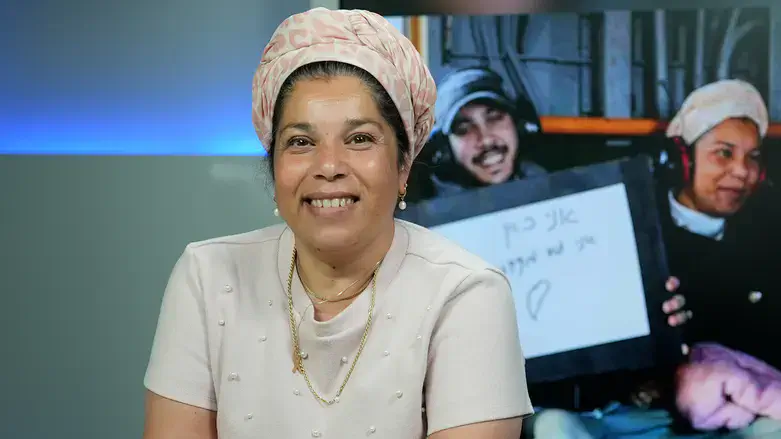
Sigi Cohen, mother of Eliya who returned after over 500 days in captivity in Gaza, was a guest in the Arutz Sheva-Israel National News studio and shared the complex emotions that have been accompanying the family since his return.
Alongside the joy, there is constant worry for his fellow captives who have not yet returned, she said. "Eliya still doesn’t have a daily routine. He returned and put himself in a position of worrying about the friends he left behind. He constantly feels Alon Ohel’s presence. They were together for a year and four months until Eliya returned, leaving him there alone. It’s hard for Eliya knowing what Alon is going through, especially now that he’s alone with no one to support him."
After his return, Eliya shared with his family what he endured during captivity. "Eliya started by telling us everything he went through, but at some point, he stopped talking. One day, he heard me say I didn’t know certain things about his experience, so he asked me to ask him so I’d know everything."
One of the hardest moments for him, Sigi recounts, was the persistent hunger. "It’s a different kind of hunger than we know, when you can’t move anywhere, and there was a lot of psychological warfare. What kept him going was faith in God, and he always had his family in mind, knowing he had a home to return to. Hope and faith in God made him feel he would get out of there."
Cohen describes how she, too, grew stronger in faith during this period: "Over this year and a half, even though I come from a religious home, I strengthened significantly. Ultimately, you realize there is none but Him. There’s no one, except God, who can bring our children back. There are many human emissaries who can help, but in the end, it’s only God. We heard from captivity survivors that they cried out to God to save them. Eliya used this faith, prayed, and taught and strengthened those with him in captivity. Even before his release, I was told he had strengthened himself and others."
Despite the family’s expectations of returning to normalcy after his release, the reality is more complex. "I was sure Eliya would come back, we’d take care of him for a week or two, and everything would return to normal. It actually became harder. It feels like a rebirth. We received a child through a miracle; he went from being a captive to an open miracle. All the strength we had during this period to fight for his return, the wall we put up to stay strong, collapsed, and then we experienced a crazy emotional crash—a real breakdown."
Sigi concluded by describing a sense of ongoing mission for the remaining hostages. "I feel today that it’s harder for me than when my son was there. We know what the hostages are going through—and as a mother who went through this nightmare, I know what the hostages’ families are experiencing. It’s tough, and we can’t go back to normal life. The primary goal of the State of Israel should be to bring everyone home—the living for rehabilitation and the dead for burial—because everyone needs closure."
After returning from captivity, Eliya visited the shelter from which he was abducted and put on tefillin there. "Eliya always felt connected to God and still puts on tefillin daily. It was his way of thanking God. Putting on tefillin in the shelter was a kind of closure, saying, ‘Here I am, I returned because of faith in God.’ He told me he felt liberated there."
